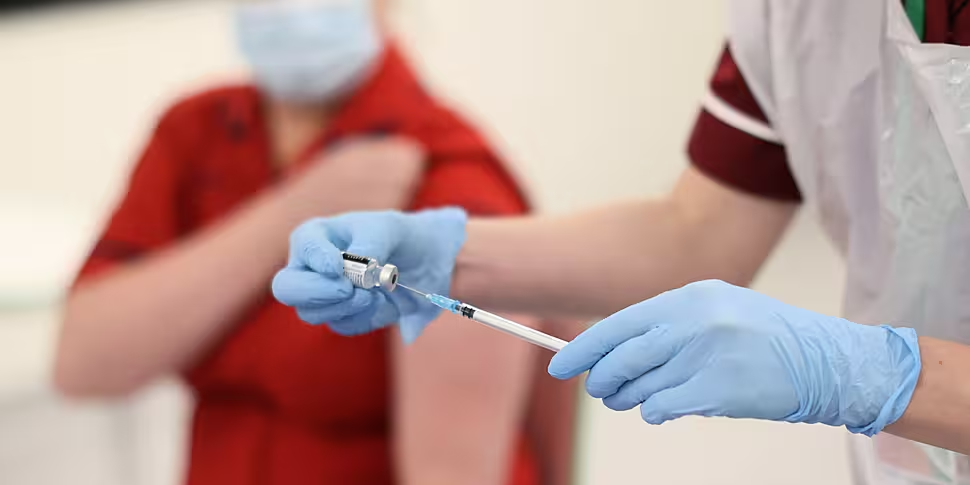With EU regulators are set to decide whether to approve a coronavirus vaccine as early as next week, details have now been revealed on how it will roll out in Ireland.
The Government today unveiled its vaccine strategy - detailing how it will be secured, transported, stored and ultimately delivered.
Vaccines will be initially administered to residential care home staff and residents, as well as frontline health workers.
That will be extended as 2021 continues, eventually involving GPs, pharmacists and mass vaccination sites.
Health Minister Stephen Donnelly says the first vaccinations could take place before the end of the year.
On today's Hard Shoulder, HSE chief executive Paul Reid went into detail about how it will all work once a vaccine is approved.
He noted that initial volumes of a Pfizer / BioNTech vaccine will be 'smaller volumes', but they are hoping to start the vaccination before the year's end.
Once the European Medicines Agency (EMA) gives the vaccine the green light, the National Immunisation Advisory Committee will need to sign off on its use here.
The first vaccines would arrive in Ireland shortly after.
Mr Reid explained: "The supplier... delivers it to our centralised cold-chain hub in Ireland.
"Over there, we store it in temperatures - for this [Pfizer] vaccine - of -75 degrees Celsius. We have put in place nine refrigerators, which each have a capacity of around 175,000 vaccines.
"They're in essence delivered in what people would be familiar with as 'pizza box' - around 975 vaccines in each box.
"When we get it in our central hub, we store it... and then it's a distribution from there to local hubs."
Once it reaches the local hubs, a clock starts ticking and the vaccine has to be administered within around five days.
However, Mr Reid stressed the process could differ depending on the vaccine - while the Pfizer and Moderna jabs need to be kept at very low temperatures, the Oxford vaccine is more easily stored.
Large-scale vaccination
Mobile vaccine teams will be in place to get the virus out in the community, while hundreds of others who worked across the healthcare system for the flu vaccine programme who will also be involved.
The process will expand to include GPs and pharmacies as more vaccine becomes available.
Mr Reid said they were involved in the major flu vaccination programme, which shows healthcare workers are already familiar with a 'big vaccine mobilisation'.
Meanwhile, authorities have also started work on a new IT system which will be required once mass vaccination begins.
Mr Reid said: "IBM Salesforce will be the partners who'll work with us on this process.
"That sets out the pre-registration process, how we communicate with people, how people register, and the vaccination process when you go into the vaccination centres."
It will also ensure that people are alerted to when they need to go get their second dose.
Mr Reid stressed their are still uncertainties, including around if and when different vaccines will be approved.
However, he said: "We do want to be vaccinating in January... and we do want to have reached a very significant scale by the first half of next year."









